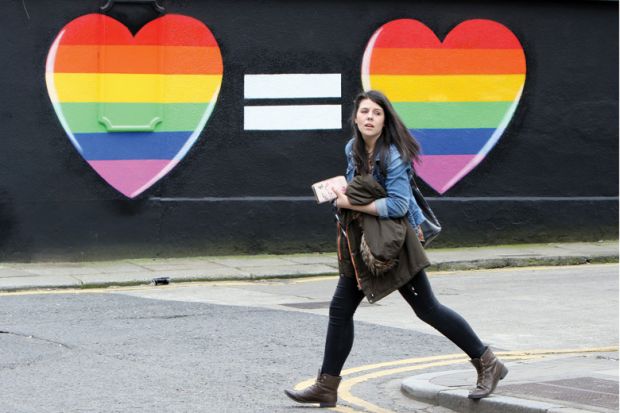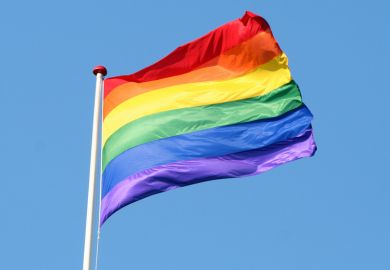University staff should be asked to take homophobia awareness classes to help combat bullying on campus, a review of support for gay students has recommended.
To help staff to become “challenge champions”, university employees should be offered the chance to take part in US-style workshops to help them identify and act upon incidents of abuse directed towards lesbian, gay, bisexual, transsexual and questioning students, according to the study published in the journal Perspectives: Policy and Practice in Higher Education.
Universities should also appoint designated “LGBT hate incident champions” to provide a clear point of contact for those who have suffered homophobia, according to the report, titled “What do LGBTQ students say about their experience of university in the UK?”.
Drawing on a 2014 survey of around 6,500 people aged 16 to 25 by gay rights charity Youth Chances – which polled nearly 3,000 LGBT students – the report explained how university students were still extremely unlikely to report incidents of homophobia, biphobia or transphobia.
About a third of all student respondents said that they had experienced an incident related to their sexuality, yet only around one in 10 said that they had reported it, with some nine in 10 saying that they did not think it was worth it.
Just one in 10 students said they felt their complaint would be taken seriously by their university and 4 per cent said they did not know how to make a complaint, according to the report conducted in association with the University of Greenwich.
“It seems that staff need to be encouraged to challenge homophobia, biphobia and transphobia,” the study’s author, Michelle Grimwood, told Times Higher Education, adding that the relative failure to tackle abuse suggested that staff were “not concerned, not aware or not confident” about reporting it.
“Progress has been made, but more clearly can be done, especially in respect of staff training and awareness,” added Ms Grimwood, a PhD student at Greenwich’s Faculty of Health and Education, whose research is focused on the support available for LGBT students at UK universities.
Ms Grimwood explained that although university was generally perceived as a supportive place for LGBT students, she believed higher education institutions could do more to help.
All universities should monitor the sexual orientation and gender identity of their students to ensure they are aware of any inequalities that arise on campus, Ms Grimwood advised, adding that “little is known about the LGBTQ students”.
“Monitoring sexual orientation and gender identity should be as routine as monitoring ethnicity and disability,” Ms Grimwood told THE, saying that it would be an “important first step for creating a culture of inclusion for LGBTQ students”.
“Until institutions can identify LGBTQ students, they will remain unaware of inequalities and disparities between LGBTQ students and their heterosexual or cisgender counterparts,” she added.
Universities would, in turn, benefit from greater knowledge of their LGBTQ student cohort, who tend to post lower student satisfaction scores than other students.
“Monitoring data can give valuable insights into LGBTQ students, their experience of quality and satisfaction with service delivery,” explained Ms Grimwood.
“There are also social, economic and well-being benefits to knowing your customers [and the] communities and populations you serve.”
Register to continue
Why register?
- Registration is free and only takes a moment
- Once registered, you can read 3 articles a month
- Sign up for our newsletter
Subscribe
Or subscribe for unlimited access to:
- Unlimited access to news, views, insights & reviews
- Digital editions
- Digital access to THE’s university and college rankings analysis
Already registered or a current subscriber?








